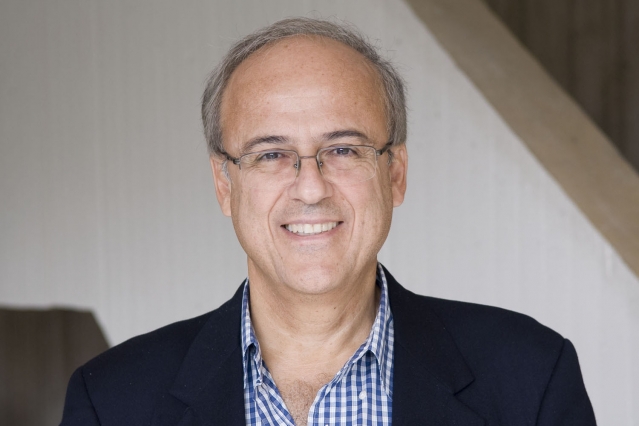
Gregory Stephanopoulos, the Willard Henry Dow Professor of Chemical Engineering and Biotechnology at MIT, has been selected to receive the Eric and Sheila Samson Prime Minister’s Prize for Innovation in Alternative Fuels for Transportation.
Awarded by the prime minister of the state of Israel and totaling $1 million, the Samson Prize is the world’s largest monetary prize awarded in the field of alternative fuels. Stephanopoulos shares the honor with Mercouri G. Kanatzidis of Northwestern University. The two researchers are being honored for “their innovative scientific and technological contributions that have the potential to lead to the development of alternative fuels for transportation, replacing the fast depleting fossil fuels which are the major fuels used nowadays in transportation.”
Stephanopoulos was recognized “for his pioneering work in the field of metabolic engineering which contributed in a major way to the progress in the engineering of microbes for biofuels production.” The prize citation reads:
“Prof. Gregory Stephanopoulos is a pioneer in the field of metabolic engineering and made seminal contributions to the engineering of microbes for biofuels production. He authored the first report on the targeting and engineering of mitochondria as a favorable component for production of biofuels and introduced the concept of global Transcriptional Machinery Engineering (gTME) for improving multigene microbial phenotypes. Of specific relevance are his achievements on xylose isomerase overexpression along with the engineering of the pentose phosphate pathway that enables rapid xylose utilization and ethanol production by Saccharomyces Cerevisiae (a species of yeast). He has also developed several strategies for the conversion of natural gas (methane) to liquid fuel with much higher energy density.”
Stephanopoulos’s current research focuses on metabolic engineering and its applications to the production of fuels, biochemicals and specialty chemicals, as well as mammalian cell physiology as it pertains to diabetes and metabolism. He has co-authored or edited five books — including co-authoring the first textbook on metabolic engineering — and some 300 papers, and he holds 25 patents. Stephanopoulos is presently the editor-in-chief of the journalMetabolic Engineering; he also serves on the editorial boards of seven scientific journals. He has been recognized with many awards and honors, including the Founders Award from the American Institute of Chemical Engineers (AIChE), the M.J. Johnson Award of the American Chemical Society, the Merck Award in Metabolic Engineering, and election to the National Academy of Engineering. In 2014, he was the recipient of the Walker Award from AIChE and currently serves as the organization’s president.
Stephanopoulos received his BS from the National Technical University of Athens, in Greece; his MS from the University of Florida; and his PhD from the University of Minnesota. He is presently directing a research group of approximately 25 researchers who work on applications of metabolic engineering for the production of fuels and chemicals.
Kanatzidis and Stephanopoulos were selected by a committee of international experts, who submitted their recommendation to a board of trustees, headed by former Technion president, Professor Yitzhak Apeloig. This is the fourth time the Samson Prize has been awarded by the prime minister’s office — the Ministry of Science, Technology and Space — and Keren Hayesod, the official fundraising organization for Israel.
The prize ceremony will take place during the Fuel Choices Conference in Tel Aviv on Nov. 2.